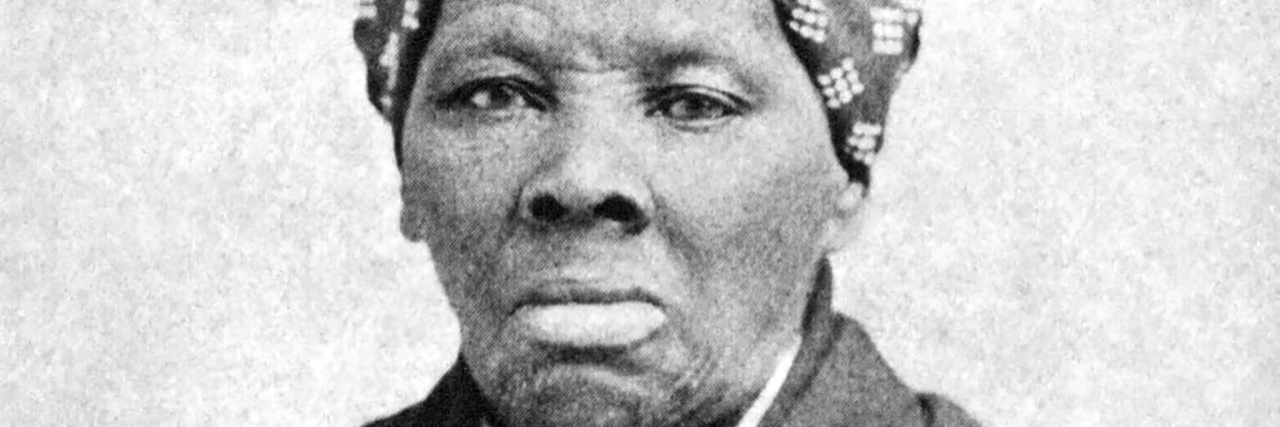I know I should see “Black Panther.” I know I should support a black movie during Black History Month. But ever since I’ve been disabled I’ve had a hard time enjoying superhero movies. I’ve had a hard time enjoying movies in general. I never get to see myself as a disabled person on screen. The rare times I see characters with disabilities, they’re played by able-bodied people.
So instead of going to see the movie this year, I took a trip to the art museum. I went the Detroit Institute of Art’s wonderful African Collection. Seeing the beautiful masks I realized I had dissociated from my identity as a black person because of my disability and not seeing disabled people of color represented in society. Further research took me to the Museum of Disability History’s Black History timeline. One of my most surprising discoveries was that Harriet Tubman was a disabled person; she had epilepsy and narcolepsy.
By not telling the stories of African disabled people, we are doing disabled black kids a disservice. We are telling them that making history as an African-American is not something a disabled person can do. Many d/Deaf people I know personally, and public figures like Nyle DiMarco have said they weren’t even able to enjoy “Black Panther” due to issues with captioning systems, which is an ADA violation. So I began to do a search for black disabled superheroes, if you will. Here are some I found:
Harriet Tubman: Seen as the Moses of black Americans, Harriet Tubman is often the recognized as a foremother of black history. What is often left out, though, is that she had what we would now identify as epilepsy and narcolepsy due to an injury she sustained while protecting a runaway slave at the age of just 12. She freed hundreds of slaves while fighting off fatigue and seizures. She is truly a hero, and her health challenges should be included when we tell her story.
Cathay Williams: Cathay Williams was the first African-American woman to enlist in the Army as a Buffalo Soldier. (I know, I got the song stuck in my head too, you’re welcome.) Later in life, she developed diabetes and neuropathy and spent a lot of time in the hospital. She was denied veteran’s benefits due to her race. Next time you’re in the hospital and feeling down, remember a female Buffalo Soldier was there too.
Wilma Rudolph: After getting polio as a child, she wore a leg brace and went through physical therapy and painful massages until she learned to walk without mobility aids at 12. She became the first American woman to win three gold medals in track and field at a single Olympics. And by Olympics, I mean the able-bodied Olympics, not the Paralympics. Next time you’re in PT, remember though you may never become an Olympian, Wilma Rudolph knows what you’re going through and is walking every painful step with you.
Ade Adepitan: Born in Nigeria, Ade contracted polio as a kid. He went on to become a wheelchair basketball player. He was part from a team that won the gold medal at the 2005 Paralympic World Cup.
Roger Demosthenes O’Kelly: Born the same year as Helen Keller, Roger was Deaf and partially blind due to scarlet fever and a football injury. He learned manual sign language to become one of only of three deaf lawyers in America when he got his law degree from Yale in 1908. He opened his own legal service firm called O’Kelly’s Legal Bureau in Raleigh, North Carolina, serving the African-American community.
Minnie Lee and Mary Alice Relf: As young teens, these cognitively disabled girls were sterilized without their consent by a family planning clinic when their illiterate mom was told to sign a paper to give them birth control shots. Instead, they had their tubes tied. With the help of Southern Poverty Law Center, they sued. This led to the establishment of informed consent guidelines for sterilization, and eventually all medical procedures. This also led to regulating federal funding for sterilization, who were often poor, people of color, and uninformed of what was happening to them. Thanks to them speaking up, disabled Americans have stronger reproductive rights. However, there’s still work to be done.
Andrew Foster: The first African-American to graduate from Gallaudet University, he established 32 schools for the deaf in 13 African nations.
These are just some of the many faces of disabled black excellence. These are my black disabled superheroes. Though not all of them have movies, they all deserve to have their stories told. As Black History Month ends, remember to tell their stories along with the stories of our other Black History Heroes.
Learn more at Disability and the African-American Experience.

